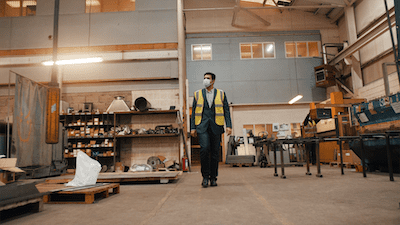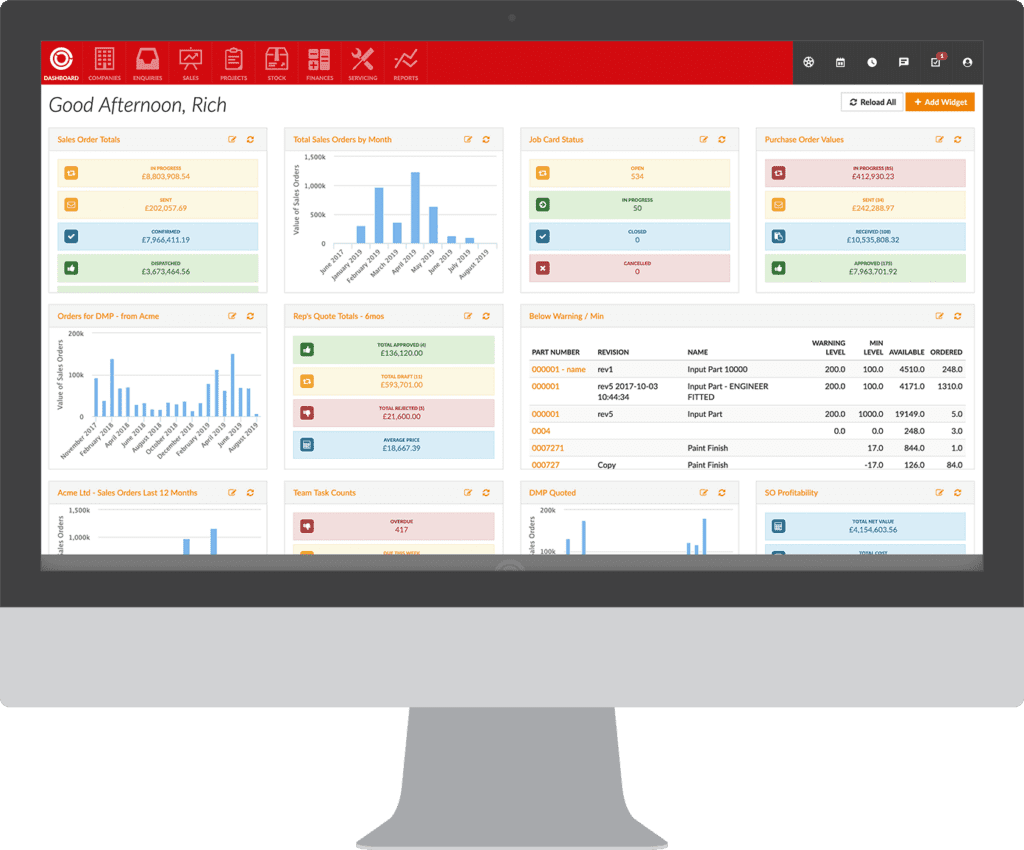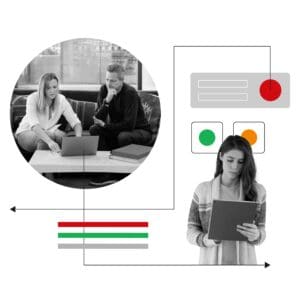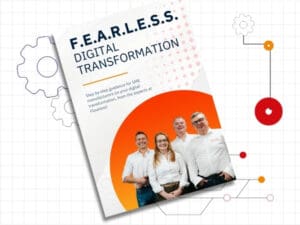The SME industry is rapidly shifting from traditional ERP systems and basic spreadsheets to modern cloud-based solutions like MRP. But what do these terms mean, and why does it matter?
ERP (Enterprise Resource Planning) and MRP (Manufacturing Resource Planning) are powerful tools for managing business operations, but they serve different purposes. ERP systems offer a comprehensive approach, integrating various functions like finance, HR, and supply chain management. On the other hand, MRP focuses specifically on manufacturing processes, optimizing production planning, inventory control, and scheduling.
Understanding the difference between ERP and MRP is crucial for choosing the system that best fits your business. The right solution can streamline operations, improve efficiency, and help your business grow in a competitive market.
In this guide, we’ll break down the key differences between ERP and MRP, explain their benefits, and help you decide which one aligns with your needs.
What is ERP?
ERP stands for Enterprise Resource Planning and it tends to require an awful lot of customisation. It’s one of the most common categories of business software used by the manufacturing industry. It’s also commonly used by the larger business and they help you out with processes such as inventory management, scheduling and production planning, but also sales, HR, financials, payroll and more.
Of course, ERP capabilities go beyond manufacturing, and it’s a very effective way of centralising business information and workflow processes. It does it through data management and because all of your data management is kept closely in one place, processes draw data from that particular location to inform insights. Data quality is improved, as it shouldn’t duplicate as it moves between systems.
ERP also works to reduce the issues of cross-departmental communication. ERP software is equipped to ensure that your business processes can be connected effectively, including supply chain and financial management, customer relationship management and even manufacturing management. A purchase order for the business could come in, and the ERP software can work to pull that info through to inform the right accounting practice. It’s pretty efficient, provided it has been customised to suit the needs of the business correctly!
ERP is a solution that will streamline and automate your workflow and work to reduce human error issues. However, it’s a bigger investment up front, and as the processes are continuously changing, it can be too much for smaller manufacturers to manage.
The main function of an ERP is:
- Sales
- Finance
- Human resource management
- Manufacturing processes
- Supply chain
- Logistics management
What is MRP?
MRP software is predominantly focused on the needs of manufacturing businesses, and different types of MRP are used depending on the type of products made. MRP stands for Material Requirements Planning. The purpose of MRP is to measure the materials that you need for your business, how much of it you need and when you need it by. MRP can allow you to ensure the highest rate of production possible for your manufacturing business.
The tools included in MRP work to assist in your manufacturing processes and boost inventory profitability. A business using MRP systems will be able to manage its production planning and forecast for the materials needed. MRP ensures that when the materials are needed, they will get the right amount that they need at the right date. Those using MRP over ERP need to ensure that the data entered is accurate and on time. Any old data skews the forecasts for the business ad, which can lead to materials being wasted.
As it stands, the SME industry is moving from traditional ERP or simple spreadsheets toward cloud products like MRP. MRP and ERP are very closely related, and yet the differences are evident. MRP focuses on manufacturing, specifically where ERP goes beyond that into CRM, accounting and even HR.
Some of the main tasks for MRP include:
- Forecasting
- Inventorymanagement
- Production scheduling
- Order and stock tracking
What Is the Difference Between MRP and ERP Systems, Then?
What’s most important is to look at the relationship between ERP and MRP to see the difference. Both go hand-in-hand with optimising your business’s operations. While MRP is a subsystem within an ERP, both are very valuable tools for improving the functionality of your business system. MRP works to supply important information about your materials and resources to the ERP solution itself. The ERP integrates that information and informs other business departments about it.
The main difference between ERP and MRP, then, is that ERP systems plan and automate back-office functions but MRP systems focus on material management, which is just one component of the larger system. MRP is a narrow focus then.
While ERP refers to numerous business software components that automate various processes within your company (including HR, finance, and sales), MRP is just one of them. Some ERPs will include an MRP, but that does not always happen. However, a business may want to use an MRP alone without the investment in an ERP if that is the only focus and function they need.
Which Is Right for You?
To determine which software solution is best for your needs, you may wish to use an ERP or MRP. Manufacturing companies, for example, that need to streamline their operations and production schedules will find an MRP to be a necessary tool. For those who need more support, including HR, sales, and finance, the use of an ERP with an MRP is the better route to go.
Let us help you determine which option is best suited for your needs.
If you are interested in chatting more about our easy-to-use MRP system with built-in CRM and service features & how it can help your business, feel free to contact me or start a trial – it’s one of my favourite subjects!








